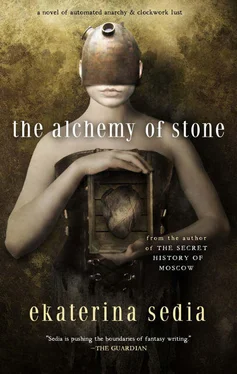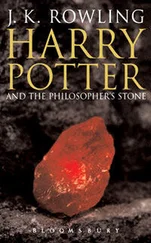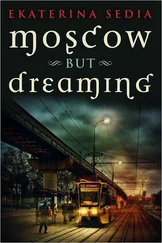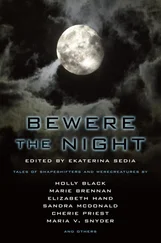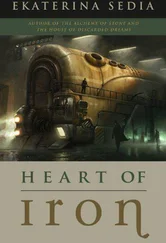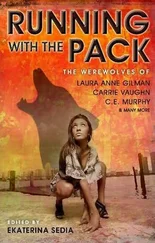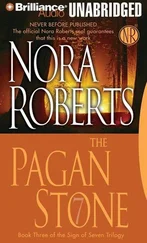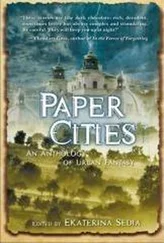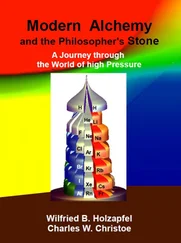Their shoulders touched and stuck, then their stomachs. Mattie thought that soon she would be in possession of a much larger homunculus, when the one made with gargoyle stone opened its mouth with slow hissing and bubbling of drying blood, and engulfed the head of its adversary. The other homunculus, headless now, thrashed, and Mattie wondered if it was capable of feeling pain.
The homunculus made of gargoyle stone devoured its fallen opponent, wrapping itself around the lifeless body and engulfing it, bit by bit.
“Hm,” Mattie said. “I wonder what that means.”
The homunculus burbled and tittered, and banged its shapeless fists on the glass surrounding it. Pink bubbles formed on its lipless mouth as the homunculus closed and opened it, as if trying to speak. Mattie hesitated—she wanted to hear what the thing had to say, but she felt disturbed by its behavior; Niobe hasn’t warned her about the possibility of homuncular cannibalism. She also didn’t tell Mattie that these things could talk, or at least attempt to; or maybe Niobe did not know. Mattie felt an electric tingling in her fingers such as she usually experienced when something special happened.
She turned away from the jar and paced along the bench, her heart ticking like a cricket on July night. She was not prepared to have created something so unexpected—and, she guessed, horrible. For a moment she fought the temptation to just destroy the creature, fling it with its tightly locked jar into the fireplace and flee from the apartment; toss it onto the streets below and let the lizards’ claws and the segmented legs of the mechanical caterpillars tear it to pieces and smear it into a long bloody streak on the cobbled pavement; destroy it forever so it never got a chance to whisper its terrible secrets to her with its mutable, liquid mouth.
She stared out of the window, distraught, until she realized that the streets below were unnaturally silent. She hung out of the window, to see as far as she could, but there seemed to be no signs of disturbance. She was about to pull the shutters closed when she heard a distant but unmistakable crackling of musket shots—a fast rattle at first, getting more disorganized and scattered soon after.
Mattie wanted to worry, to run to the Parliament to see if everything was all right, to check on the unfinished Calculator to make sure it still stood. She could picture it in her mind, towering and clanging and belching, like a miniature foundry surrounded by a phalanx of grim and determined mechanics… Loharri would be there for sure, she thought, ready to defend the Calculator.
The sound of breaking glass startled her from her reverie, and Mattie whipped around, the joints of her waist whining with the sudden movement, the springs of her back taut and stretched to their limit.
The jar lay shattered on the floor—the homunculus inside must’ve wrestled it to the edge of the bench and flung it over, and now it gathered itself into a human form again, moving toward Mattie on its soft, boneless legs. It hissed and burbled, and Mattie stepped back, only to feel the hard ledge of the windowsill behind her back.
The homunculus, almost knee-high, reached for her, and its small, fingerless hands left dark smears on her skirt. Its hissing and bubbling grew louder, and it tugged in her skirt, demanding.
Mattie kneeled next to the creature, repulsed and intrigued. Its disgusting mouth formed another pink bubble, and it hissed—boiling of blood, susurrus of waves reaching the sandy shore—strange words. Mattie bent lower.
“Lissssen,” the homunculus whispered, its lips next to her ear.
The children of stone clamber to the surface in broad daylight, and we watch them with a measure of surprise. The spiders and the miners, the ones who smell of soft earth and grain (and we think, they shouldn’t even he here, underground)— they all are there, afraid yet exhilarated. They carry weapons— heavy axes and hoes, mostly, but there are a few muskets, the silver filigree on their stocks glittering.
We want to ask them to be gentle, but the very thought is ridiculous; their eyes, squinted in the sun glare, dream only of burning, we can see it plainly. They do not want to be underground, and we cannot blame them.
They emerge like cicadas, in great numbers and all over. We know the tunnels and the shafts under the city where they and others like them had burrowed for centuries—like cicadas— until one day they realized that instead of digging sideways they should go up, up, toward the sun, where they can become what they always dreamed of. We did the same before them—at least, we assume we did; we cannot remember our lives before the stone shuddered and vomited us into the pool of sunlight, harsh and beautiful, where only the basalt under our feet felt familiar.
The children of the city—our children—run at the sight of them, except the ones encased in metal, glittering like large iridescent beetles. They advance, on foot and on their small mechanized monstrosities that carry them around on their backs, metal heaped upon metal, and we wonder if there is any flesh in them at all.
One of the miners fires the first shot, and the metal man jerks backwards, an almost comical fountain of blood springs forth from where the metal of his head doesn’t quite meet the metal of his chest, and we guess that the flesh underneath was not just our imagination.
The metal men fire into the crowd, and many fall. And then other people come—they come from behind the houses, from the alleys, many on lizard back and dressed in expensive clothes; there are also the children of red earth, dark-skinned, traders and artisans that tried to make their homes here, and we cannot watch anymore.
We flee from the carnage, aware of disregarding our duty of eternal watching, but our eyes refuse to look and close or turn away, and our legs carry us against our will across the roofs. In other streets, other places we see the same scene—we see blood and gutted lizards, the metal monsters devoid of their riders bumping mindlessly into the walls of the buildings, the sizzling metal buckles, the coal spills, the houses catch fire. We do not recognize the city anymore and flee to our only hope, to the girl who can help us.
We look through her window, suddenly worried that she might be dead and dismembered somewhere, the ticking of her heart silenced, the window in her chest broken. But she is alive and at home, and we sigh with relief, and wonder why is she kneeling next to the creature who smells of blood and stone, the creature who is whispering into the pink perfect shell of her ear. She is so absorbed in its words that she does not hear the door opening behind her, and we do not think of warning her.
Mattie startled when someone tapped her on the shoulder, and jumped to her feet, her fists balling.
Loharri smiled. “Easy there,” she said. His eyes watched the homunculus with keen interest. “What is this, Mattie? Did you make that?”
“Yes,” she said.
“What does it do?”
“I’m trying to make it obey me,” Mattie said. “I made it from the stone of the gargoyles, and now I want to compel it to release them… but I want to find something else to attach them to, first.”
“Fascinating,” Loharri said, and looked away from the homunculus. His long eyes seemed cold now, and Mattie felt another wave of creeping terror. Had he guessed that she made one for Iolanda? Did he suspect that Mattie had the power to bind him? She thought back to the very first time she had met Ogdela, and saw Loharri afraid; how she envied that power then! And yet now she wished he didn’t know what she was capable of, that he wouldn’t look at her like that—as if sizing up the enemy. “You’re not safe here,” he said. “They’ve taken the northern district, everything there. The enforcers are holding them off, but they are advancing on the east. Best you come with me. Bring that thing along.”
Читать дальше
